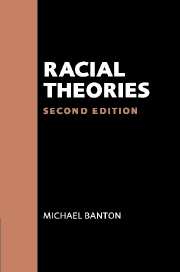1 - Race as designation
Published online by Cambridge University Press: 09 November 2009
Summary
In the United States of America in the first half of the nineteenth century it was customary to refer to the three main sections of the population as ‘whites’, ‘negroes’ and ‘Indians’. In 1866 the legislature passed a Civil Rights Act which declared that all persons born in the United States were citizens thereof, and that ‘such citizens, of every race and color … shall have the same right … to make and enforce contracts’ and do various other things. This may have been the first occasion that Congress used the word ‘race’ to designate groups in this way, and to refer to the protection of constitutional rights ‘without distinction of race or color’. Four years later the Fifteenth Amendment to the Constitution provided that the right to vote ‘shall not be denied … on account of race’. To persons brought up within the English-speaking world this use of the word ‘race’ to designate human groups or sections of the population is unremarkable, but to persons brought up in other language worlds it can seem highly questionable. Some French people would even call it ‘racist’ in the modern sense of that word, because it misrepresented the nature of the differences between the groups.
Others might not carry their objections as far as this, but still express deep concern over a trend in English usage which has gathered strength since 1866. For example, it has been announced that the British population census in 2001 will include a question on ethnic group that will include ‘Mixed-race’ as one of the optional answers.
- Type
- Chapter
- Information
- Racial Theories , pp. 1 - 16Publisher: Cambridge University PressPrint publication year: 1998



